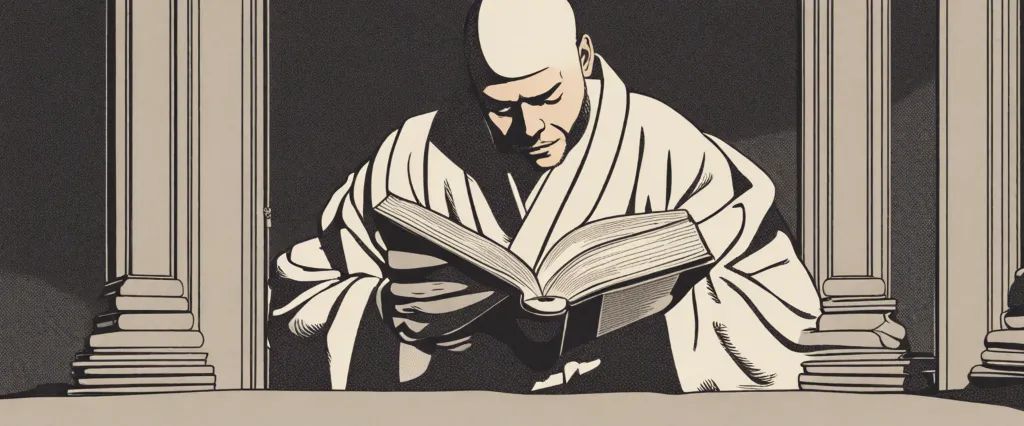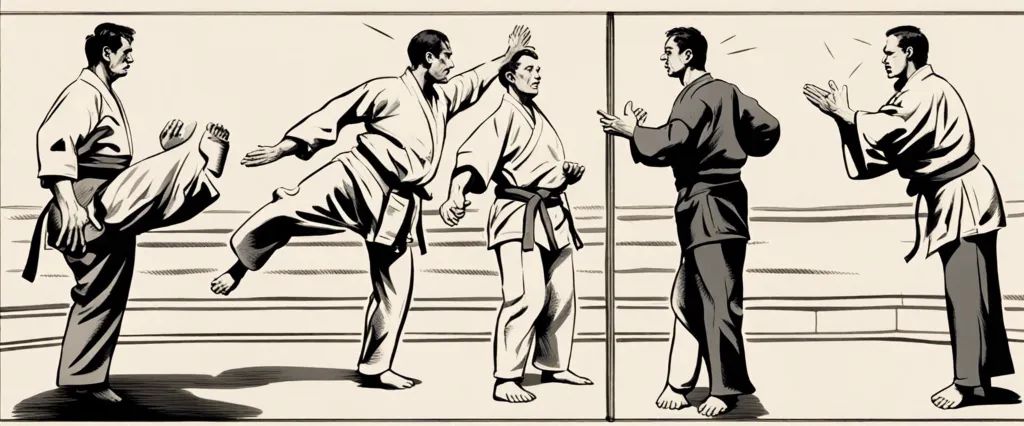
Chapter 1 What's Book For The Culture by Marcus Collins
"Book For The Culture" by Marcus Collins is a guidebook that provides practical advice and insights for individuals looking to break into the creative industry and build a successful career. The book covers topics such as personal branding, networking, and identifying and pursuing your passion. It also delves into the importance of diversity and representation in the creative world, offering inspiration and motivation for those striving to make an impact. Overall, "Book For The Culture" is a valuable resource for anyone looking to thrive in the competitive and fast-paced world of creativity.
Chapter 2 Is Book For The Culture A Good Book
The book "For the Culture" by Marcus Collins is well-reviewed and highly recommended for those interested in learning more about the intersection of technology, creativity, and culture. It explores how popular culture shapes and influences our beliefs, behaviors, and decisions in the digital age. Overall, it is considered a good book for readers looking to gain insights into the impact of culture on society.
Chapter 3 Book For The Culture by Marcus Collins Summary
"For the Culture" by Marcus Collins is a book that explores the powerful impact of culture on society and the ways in which it shapes our beliefs, values, and behaviors. Collins delves into the various aspects of culture, from music and fashion to literature and art, showing how each contributes to the vibrant tapestry of human experience.
Through personal anecdotes and insightful analysis, Collins argues that culture is not just a reflection of society, but a force that can drive change and innovation. He highlights the ways in which individuals and communities can harness the power of culture to celebrate diversity, challenge norms, and create a more inclusive and equitable world.
The book also delves into the ways in which culture intersects with issues of race, gender, and class, shedding light on the ways in which certain cultural narratives can perpetuate inequality and injustice. Collins calls on readers to critically examine the cultural messages they consume and create, and to work towards building a more just and inclusive society.
Ultimately, "For the Culture" is a thought-provoking and inspiring exploration of the transformative power of culture and the ways in which it can shape our world for the better. It is a call to action for individuals to embrace their cultural heritage, celebrate diversity, and work towards creating a more just and inclusive society for all.

Chapter 4 Book For The Culture Author
Marcus Collins is a marketing professor at the University of Michigan's Ross School of Business. He is also a cultural strategist whose work focuses on opening up financial access for people from marginalized communities.
"Book For The Culture" was released in 2020 and is his debut book. It focuses on the intersection of culture and brand marketing, providing insights and strategies for businesses to better engage with diverse audiences.
As of now, "Book For The Culture" is the only book written by Marcus Collins. However, he has also written numerous articles and has been featured in various media outlets for his expertise in marketing and cultural strategy.
In terms of editions, the initial release of "Book For The Culture" is considered the best edition as it contains the most up-to-date information and insights from the author. Future editions may include updated case studies and examples to further enhance the reader's understanding of the topic.
Chapter 5 Book For The Culture Meaning & Theme
Book For The Culture Meaning
For the Culture by Marcus Collins is a book that explores the impact of culture on various aspects of society, including business, entertainment, and social movements. The title suggests that the book is focused on celebrating and understanding the importance of culture in shaping our world.
In essence, the book delves into how cultural influences drive behavior, shape perspectives, and contribute to the development of individuals and communities. It emphasizes the significance of cultural awareness and appreciation in fostering diversity, inclusivity, and unity.
Overall, For the Culture by Marcus Collins aims to shed light on the power of culture in shaping our identities, relationships, and institutions, ultimately advocating for a more culturally informed and interconnected world.
Book For The Culture Theme
The theme of the book "For The Culture" by Marcus Collins revolves around the importance of preserving and celebrating cultural heritage, identity, and traditions. The author explores the ways in which culture influences our beliefs, values, and behaviors, and emphasizes the need to recognize and appreciate the diversity of cultures within society. Collins also delves into the impact of globalization and modernization on traditional cultures, and advocates for the empowerment and representation of marginalized communities. Through personal anecdotes, historical perspectives, and social commentary, the book encourages readers to embrace and promote cultural diversity as a source of strength, unity, and understanding.
Chapter 6 Other Accessible Resources
- Book For The Culture by Marcus Collins - Official Website: This website provides information about the book, the author, and where to purchase it. (https://www.booksfortheculture.com)
- Goodreads: Users can find reviews, ratings, and discussions about Book For The Culture on this popular book review platform. (https://www.goodreads.com/book/show/56574236)
- Amazon: Interested readers can purchase Book For The Culture in both print and Kindle formats on Amazon's website. (https://www.amazon.com/Book-Culture-Marcus-Collins/dp/978059367)
- Barnes & Noble: This bookstore also offers Book For The Culture for purchase online or in stores. (https://www.barnesandnoble.com/w/book-for-the-culture-marcus-collins/1128221660)
- Audible: The audiobook version of Book For The Culture can be found on Audible for those who prefer to listen to books. (https://www.audible.com/pd/Book-For-The-Culture)
- Twitter: Follow Marcus Collins on Twitter for updates, conversations, and insights related to his book and the themes it explores. (https://twitter.com/marcuscollins)
- Instagram: Marcus Collins shares visuals, quotes, and behind-the-scenes moments related to Book For The Culture on his Instagram account. (https://www.instagram.com/marcuscollins/)
- YouTube: Look for interviews, book readings, and promotional videos related to Book For The Culture on YouTube to learn more about the book and its impact. (https://www.youtube.com/results?search_query=Book+For+The+Culture)
- LinkedIn: Connect with Marcus Collins on LinkedIn to stay updated on his professional activities and any upcoming events related to his book. (https://www.linkedin.com/in/marcuscollins/)
- Podcasts: Listen to podcast interviews with Marcus Collins where he talks about the inspiration behind Book For The Culture and the conversations it aims to spark. (Search for "Marcus Collins Book for the Culture podcast" on popular podcast platforms)

Chapter 7 Quotes of Book For The Culture
Book For The Culture quotes as follows:
- "Culture is not just a way of life, it's a way of being." - Marcus Collins
- "Our differences are what make us unique, but it's our shared values that bring us together." - Marcus Collins
- "Culture is not static, it's constantly evolving and changing. Embrace the change and celebrate the diversity." - Marcus Collins
- "Understanding and respecting other people's cultures is essential for building a more harmonious society." - Marcus Collins
- "Cultural heritage is the foundation upon which we build our future. Let's honor and preserve it for the next generation." - Marcus Collins
- "The beauty of culture lies in its ability to connect us with our past, define our present, and inspire our future." - Marcus Collins
- "Culture is like a tapestry, made up of different threads and colors. Each one is unique and valuable in its own way." - Marcus Collins
- "The richness of a society is measured by its cultural diversity and inclusivity. Let's strive for a more inclusive world." - Marcus Collins
- "Cultural exchange is not about assimilation, it's about appreciation and mutual respect for each other's differences." - Marcus Collins
- "In a world full of division and conflict, let's remember that our shared humanity is what unites us all. Embrace diversity, celebrate culture." - Marcus Collins
Chapter 8 Similar Books Like Book For The Culture
- "Nudge: Improving Decisions About Health, Wealth, and Happiness" by Cass R. Sunstein and Richard H. Thaler - If you enjoyed "Wiser" by Cass R. Sunstein, you will likely appreciate this insightful book on how small nudges can lead to better decision-making in various aspects of our lives.
- "Predictably Irrational: The Hidden Forces That Shape Our Decisions" by Dan Ariely - This thought-provoking book delves into the quirks of human behavior and decision-making, offering valuable insights into why we make the choices we do.
- "The Power of Habit: Why We Do What We Do in Life and Business" by Charles Duhigg - Exploring the science behind habits and how they can be changed, this book is a fascinating read for anyone interested in understanding the mechanisms that drive our behavior.
- "Thinking, Fast and Slow" by Daniel Kahneman - Nobel laureate Daniel Kahneman explores the two systems of thinking that shape our decision-making processes, shedding light on the cognitive biases that influence our judgments.
- "Invisible Women: Data Bias in a World Designed for Men" by Caroline Criado Perez - This eye-opening book reveals the hidden biases in data collection and analysis that perpetuate gender inequalities, offering a compelling argument for more inclusive and equitable decision-making processes.

















